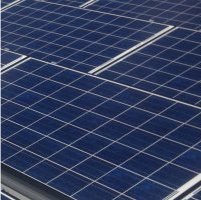The U.S. has won a long-running trade dispute with India over the country’s rules restricting the import of foreign solar cells and panels used under India’s National Solar Mission.
A World Trade Organisation panel has ruled that India’s domestic content requirements (DCRs) – which force Indian solar developers selling electricity to the government to purchase solar materials from local manufacturers – breach international trade law and discriminate against U.S. exporters.
The U.S. Department of Trade (DoT) launched its dispute in early 2013, but the WTO panel wasn’t established until September 2014.
Citing WTO rules prohibiting restrictions on free trade and the desire to see India achieve a clean energy future through better technology, the DoT argued that overturning “localisation” policies like DCRs would not only help American solar manufacturers, but would speed the deployment of solar energy globally.
U.S. Trade Representative Michael Froman said the ruling sent a message to other nations.
“Today, the WTO panel agreed with the United States that India’s ‘localization’ measures discriminate against U.S. manufacturers and are against WTO rules,” he said.
“The United States and India are strong supporters of the multilateral, rules-based trading system and take our WTO obligations seriously. This is an important outcome, not just as it applies to this case, but for the message it sends to other countries considering discriminatory ‘localization’ policies.”
India’s National Solar Mission was launched in 2011 and aims to deploy 20,000 MW of grid-connected solar power in the country by 2022. A major platform of the mission is to build a strong domestic solar power sector within India. Under the scheme, solar power generators were required to procure solar materials from local manufacturers to become eligible for government funding.
According to the U.S. Trade Department, since 2011 this requirement has resulted in a 90 percent drop in exports of solar cells and modules to India from U.S. solar businesses.
“The United States strongly supports the rapid deployment of solar energy around the world – including in India,” said Froman. “But discriminatory policies in the clean energy space in fact undermine our efforts to promote clean energy by requiring the use of more expensive and less efficient equipment, raising the cost of generating clean energy and making it more difficult for clean energy sources to be competitive.”
The U.S., though, has a chequered history of its own when it comes to protecting domestic solar producers. In 2014, a WTO Investigatory Panel found the U.S. Dept. of Commerce violated international trade agreements in 2012 by imposing a 35.2 percent anti-dumping tax on imports of Chinese-made products, including solar panels, amounting to an annual export value of $7.2 billion.
At the time, the U.S. Solar Energy Industries Association (SEIA) and the Coalition for Affordable Solar Energy (CASE), called on the DoC to scrap the tax, saying it would raise the cost of solar materials, and hurt American solar workers.












































